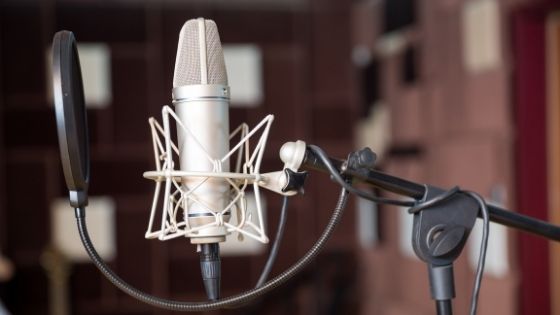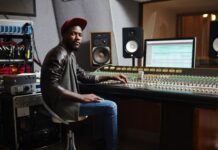Recording in a professional studio is very different from recording at home. It is exciting, but it can be intimidating and challenging at the same time. If you are not prepared to record in this environment, you could end up making mistakes or carrying over some techniques and habits that will make things much harder for you. Because studio time is not cheap, you have to be properly prepared. To help you out, here are five things you need to do before you step into a professional studio.


Prepare at Home
A common mistake musicians make is walking into a studio with only a vague idea of what they want the final track to sound like. Doing this means you spend some of your studio time preparing, which is a huge setback in terms of money and time. Instead of doing this, prepare at home first.
Ensure all your songs are completely written and arranged, and you have practiced doing the whole song at least once beforehand. All the parts, instruments, and layers should be planned so you do not do this at the studio. Of course, the engineer can work with you to fine-tune things, but that will take less time than if they were helping you start from scratch.
Have Some Demos Ready
Many people don’t realize that songs can sound very different once they are recorded. You might have a chorus or part of a song that sounds great in your head and notice it needs more work once it is recorded. Recording a demo beforehand helps you catch any issues and address them before you start recording professionally.
The demo does not have to sound perfect; it just has to sound good enough so that you can clearly hear if any parts need reworking.
Set Clear Goals
Before you get into the studio, you need to know what you want to accomplish at the end of the session. You need to think about how many songs you want to record or what parts of what songs you want to get done. Once you have a goal, you can start thinking about how much studio time you need to book.
Some musicians will book one recording session for a single song if they are well-prepared and have everything ready to go while others need a lot more time. The good news is that a professional recording studio will let you book the amount of time you need to finish everything you need to. You can get into such a recording studio for an hour or a day, and you get the space to record everything you want. Others will let you block off a few days depending on your goals and the complexity of the recording.
Prepare All Files and Plug-ins
To save studio time, you could prepare some parts of your song(s) at home. Some common things to do here include setting the effects you want to use in the song, programming the drums, setting the tempo for the click tracks, and recording electric guitars. Once you have everything prepared, you can bring these files to the studio.
However, there is one catch: compatibility. The software you use at home might be different from the one used in the studio. This means the engineer might need to tweak their software before you start recording to ensure everything works as you would like it to. Also, prepare the plugins you used during the prep. Even if everything you record at home doesn’t sound as good as you would like to, you will already have a reference for where to start once you are in the studio. This could save you a lot of time and money.
Make a To-do list
Staying organized will save you a lot of time and lots of headaches. A to-do list is a great way of staying organized as you will always know what needs to be done, when it needs to be done, and what needs to be done afterward. For example, you might know that a guitar session is coming after a vocal season. You might start tuning the guitars – which can take a long time – before the vocals are completed.
You also get the chance to set up the right microphones for different types of vocalists before they have to start recording. Using a to-do list as a guide means you will not be jumping back and forth trying to set everything up as it is needed but will instead always have it ready. Additionally, the list will ensure you only bring the instruments you need for the session, which can make things infinitely easier. You can also visit rehearsal studio melbourne for best solution.
Recording at a professional studio is different and challenging, but it can also produce excellent results if you are prepared. The preparation will start at home and help keep things going smoothly so your recording sessions are not frustrating.


























